This 1992 French documentary has come to light.

‘I was not a very open person when I was a kid. I was kind of shy and not really connected to people.’
This 1992 French documentary has come to light.

‘I was not a very open person when I was a kid. I was kind of shy and not really connected to people.’
One of the longest-running classical blogs, Sticks and Drones, has come to the end of its useful life, or so its co-authors have decided.
Conductors Bill Eddins and Ron Spigelman started sharing their thoughts on September 14, 2007. They covered the US orchestral scene and achieved a committed, sometimes passionate, readership. But now they have concluded that nothing’s going to change, so why bother?
Here’s Bill’s parting shot:

Despite our best efforts I’m really wondering if S&D had any kind of impact on the profession that we love. Looking across the landscape there is … well, the usual madness. Strange disputes in Fort Worth, Grand Rapids, and Hartford that are based on the usual touchpoints – lack of vision, trust, and money – tho’ the last is a direct consequence of the first two. Meanwhile, the juggernauts keep on juggernauting, oblivious to what is actually happening in classical music, the non-profit equivalent of “too big to fail.” There are a few bright spots, and I’m delighted that The Minnesota Orchestra is one. It is possible that they might forge a different path worth emulating. (Although I recently did set foot in that monstrosity of a new foyer that untold millions was wasted on. Ugh.)
But all and all not much has changed, which leads me to the inevitable conclusion that it’s not the business that needs changing, it’s the people. The problems in Hartford, Grand Rapids, and Fort Worth wouldn’t happen with the proper leadership on all sides, and that includes Board, Administration, and Musicians. This is hard to come by, as shown by the very public disaster at Carnegie Hall last year. Having two outta three doesn’t cut it. On the flip side of that coin is the aforementioned Minnesota Orchestra, where leadership in all three departments has led to an astonishing turnaround. Did the model change in Minnesota? Sure, but not as much as the people did.
Continues here.
We regret to share news of the death of Lizzy Aston (Edmonsen), founder in 1992 of Yorchestra, a summer ensemble in the city of York that went on to produce many professional musicians.
Lizzy died on January 15. She was also known as the author Lizzy Pewsey and Elizabeth Aston.
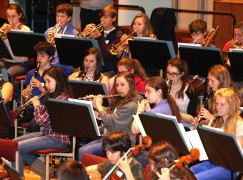
‘However,’ the former music director goes on to tell Richard Morrison in The Times (paywalled), ‘many companies survive — and have done for years — without a 12-months-a-year chorus and orchestra. Whether ENO can have musicians employed all year round must be one of the issues its management is facing.’
Mark says ENO has always been on the brink. The present team must learn to live within its means.
If you’re not a Times subscriber, you’ll have to buy the paper to read his thoughts.
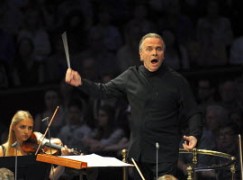
photo: Chris Christodoulou/Lebrecht Music&Arts
This is an unfortunate recurrence.
Met statement: Jonas Kaufmann has canceled his performances in this season’s new production of Puccini’s Manon Lescaut due to illness. Star tenor Roberto Alagna, currently at the Met giving an acclaimed performance of Canio in Pagliacci, will sing his first-ever performances of des Grieux in Manon Lescaut, replacing Kaufmann. To allow time for him learn the staging before the February 12 new production premiere, Alagna must withdraw from his remaining performances as Canio as he undertakes this new challenge.
Kaufmann cancelled Carmen at the Met last year. Recently he gave acute sinusitis as the cause for pulling out of the Real in Madrid.

Some more detail here.
The soprano Denise Duval created the roles of Elle in La voix humaine and Thérèse in Les mamelles de Tirésias, as well as playing Blanche in Dialogues des Carmelites, after its Italian premiere.
Poulenc first spotted her at the Folies Bergères and decided she would be his perfect interpreter.
A member of the Paris Opéra and Opéra-Comique from 1947 to 1965, Denise toured widely with the composer. Poulenc called her his ‘feminine ideal’.
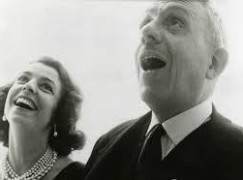
Elegant, youthful and effortlessly entertaining, she retired in 1965 after a vocal injury that was poorly treated. For the rest of her life, she mostly shunned music.
Denise Duval died in Switzerland yesterday, aged 94.
Click here.
Programme:
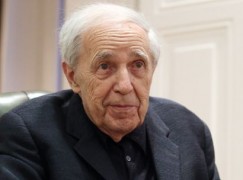
In an interview today with Vesa Siren for the Helsingin Sanomat, the Pittsburgh music director practically takes himself out of the running for the New York Philharmonic vacancy.
He tells Vesa: ‘I think Esa-Pekka would be the right person also for this great orchestra.
‘My contract with Pittsburgh goes to 2020 so I feel an obligation to stay in Pittsburgh… I love the New York Philharmonic, definitely, and I am sure that they will pick out the right person in the future…. I have great things to do in Pittsburgh, which I don’t want to miss also.’
So that rules out New York’s next in line…. They are running out of names, and out of time.

H/t: Vesa Siren.
Original interview here.
Julien Beaudiment was 22 when he became principal flute at the Opéra National de Lyon. At 35, he won the principal flute position in the Los Angeles Philharmonic, a dream come true. But two years later he resigned, ‘for personal reasons’. Now he is ready to explain why he left, in an interview with his recital partner, Hugh Sung.
You can listen to the full audio interview here. In this segment, Julien explains why, reluctantly, he had to leave LA.

Julien Beaudiment: (Los Angeles) was the most important experience of my life so far. These two years for me – this city, this orchestra, gave me the possibility to understand myself better.
The people were so nice. The administration were amazing. Gustavo is so gifted. I will remember (forever) some concerts I made with him – Rachmaninov Isle of the Dead, Mahler symphonies, Tchaikovsky symphonies… I miss him. After a concert he would always come up to me on stage and say ‘très bien!’ I think that’s the only two words he knows.
My childhood dream was to live in America. I am so lucky to have achieved that.
Now I am comfortable to speak about (why I left). I am suffering for 30 years from a chronic kidney disease. We discovered my condition was really bad when I decided to live in Los Angeles. I saw a nephrologist in LA who told me the waiting list there for transplant was 8-10 years.
Suddenly you realise what is important. In France, the health system is so good, and free. And the waiting list is one to two years. I couldn’t see myself doing dialysis for ten years… And my mother was dying… So…
By chance, the opera house in Lyon had not filled my position. I called them, and went back.
The position of teacher at the Conservatoire was also open. So … tout est bien qui finit bien.
So many people suffer from a chronic disease, but life doesn’t stop. My kidney function is about 40 percent but I am touring the world. You can do so many things…
I think the best is yet to come.
Rodica Iosub has died of a rapid illness, aged 56.
Notice from the Israeli Philharmonic:
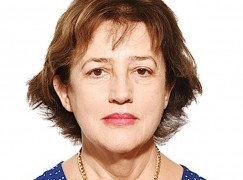
In 1981 a young violinist arrived for an audition at the IPO. A few minutes later the sounds of Paganini’s Violin Concerto No. 1 filled the hall, Maestro Mehta nodded – you have been accepted!
Violinist Rodica Iosub joined the orchestra 35 years ago and sadly, suddenly, parted from us yesterday.
Rodica began her musical career in Romania where she was considered a child prodigy. As a member of the Israel Philharmonic, she trained and helped many young musicians and was always happy to devote her abilities and time to others.
Rodica played in the first violin section of the orchestra. Despite numerous opportunities offer to her, she remained faithful to the IPO which she viewed as her home and her family. She loved to travel around the world – with the orchestra and with her family. Last November, she took part in the IPO’s tour of the U.S. just before falling sick. From her hospital bed, she told close friends how much she wanted to resume playing.
Maestro Mehta expressed his condolences: ‘Rodica was one of the most treasured violinists of the Israel Philharmonic Orchestra and played with the greatest enthusiasm since joining the orchestra in 1981. She was greatly appreciated by all her colleagues and myself throughout the years. We shall miss her.’
Our regular collaborator Shawn Milnes found much that was not to the public’s liking at the return of a company New York had left for dead.

On the night I attended the NYCO-R Tosca, I found an attractive, younger, finance crowd that I do not see at the Met in such numbers.
Some of these young people will eventually be poised to become the next generation of mega arts donors. That is great, both for NYCO-R and opera in general.
However will they return in the future, especially given the frustration and chaos the facilities at the Rose Theatre at Jazz at Lincoln Center caused?
Was it NYCO-R or the Rose’s fault that people spent the vast majority of the two intermissions on line for the single working men’s room or on line at the single bar with only two working cashiers?
Many people did not even get the drink they waited 10 minutes on line for as intermission ended before they could.
Several people missed the second act because they were waiting for the bathrooms and there were no late admissions to the theatre after either intermission.
Shawn’s conclusion: must try harder. Read his full and frank assessment here.
The Boston music director has been discussing his upcoming Shakespeare season with our pals at bostonclassicalreview.com:

“He’s problematic, you know?” Nelsons said. “This question—‘to be or not to be’–is a constant question for all of us, and will be always.
“We look at Hamlet through Shostakovich’s eyes,” he said, touching on another festival item, the theater music the Russian composer composed while still a student (not the much later score to a film of Hamlet).
Recalling Shosatkovich’s wary relations with the deadly Stalin regime in the U.S.S.R., Nelsons said, “Three hundred years [after Shakespeare], what was in Shostakovich’s life? To be or not to be!” In this very early theater score, “there is a requiem, a funeral march, Ophelia’s song, a dance. In all of this already there is some kind of irony and drama” characteristic of this composer.
Aren’t both those things already in Shakespeare’s play? “You can say this music is about the play and the dramatism of Hamlet,” Nelson answered. “Of course it is, but I’m sure, if you see the parallels to how he lived [under Soviet rule], Shostakovich was kind of a Hamlet in his life, you know? He faced these questions in a very personal way.”
Read more here.